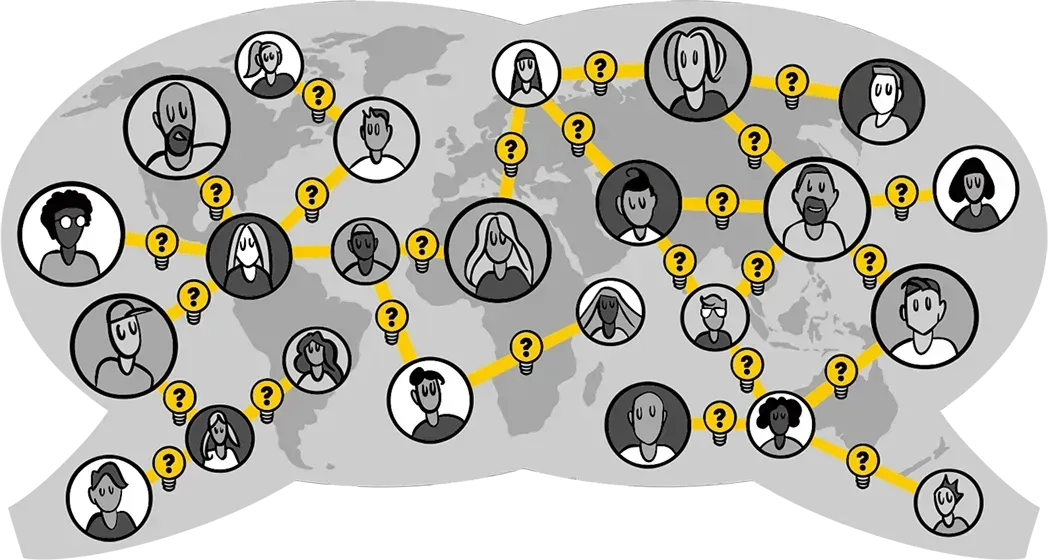Changing Minds Respectfully
Foster Reflection and Encourage New Perspectives

The Art of Persuasion Through Reflection
Navigating Beliefs (NB) provides a powerful framework for guiding belief change respectfully and constructively. By focusing on reflective questioning and fostering empathy, NB practitioners encourage open-mindedness and create opportunities for individuals to examine their perspectives. Unlike confrontational methods, NB emphasizes building rapport and navigating sensitive topics with care and intellectual humility.
NB equips practitioners with tools to ask thoughtful questions, explore alternative perspectives, and introduce challenging ideas in a way that reduces resistance. These techniques empower you to influence others constructively, fostering meaningful conversations that inspire reflection and belief shifts. Whether you’re addressing controversial topics or engaging with opposing views, NB transforms persuasion into a collaborative and respectful process. Discover coaching resources that help refine your skills in facilitating belief change.
Find the Best Fit for You
You've landed on a page about Navigating Beliefs, a method to help people reflect on the quality of their reasoning through civil conversation. Take our free self-paced course at NavigatingBeliefs.com or learn more about the organization behind these world changing projects.

Navigating
Beliefs
You've arrived at Navigating Beliefs—a new name for the approach born out of Street Epistemology. Although our name has changed, our vision remains the same: A more rational world through civil conversations.

Street Epistemology
International
The organization behind the development of the Navigating Beliefs course, supporting the Navigating Beliefs method and offers resources for critical thinking and civil conversation.
Discover NB strategies for guiding reflection and fostering belief shifts constructively.

Applying Navigating Beliefs to Persuasion
Navigating Beliefs uses empathy, curiosity, and critical thinking to engage in non-confrontational persuasion. Practitioners employ reflective questioning to guide individuals toward examining their beliefs and uncovering potential inconsistencies. By creating a respectful and open environment, NB enables conversations that lead to self-reflection and belief shifts without creating resistance or conflict.
NB practitioners learn how to ask better questions, plant seeds of doubt respectfully, and guide discussions toward new perspectives. These methods make it possible to challenge deeply held beliefs constructively and encourage open-mindedness. With NB, persuasion becomes a thoughtful and empathetic exchange rather than a contentious debate. Learn more about NB communities where practitioners share techniques and experiences in fostering belief exploration.
Exercises for Reflective Persuasion
Mastering the art of persuasion requires practice, and NB provides exercises to refine your ability to engage in constructive conversations. Activities like role-playing discussions, practicing empathetic questioning, and guiding self-reflection help build confidence in navigating challenging topics effectively.
For beginners, tools for non-confrontational persuasion and methods for introducing alternative views offer accessible ways to start. Advanced practitioners can focus on techniques for fostering belief shifts peacefully and managing resistance in conversations. These exercises help build rapport, reduce defensiveness, and inspire meaningful reflection in others. Explore self-guided learning to enhance your NB skills and grow as a practitioner.

Free Learning Course for Ethical Persuasion
Ready to guide reflective conversations? The Navigating Beliefs course teaches Navigating Beliefs tools to foster empathy, ask reflective questions, and inspire belief shifts through respectful dialogue.
GO TO COURSE ➔


